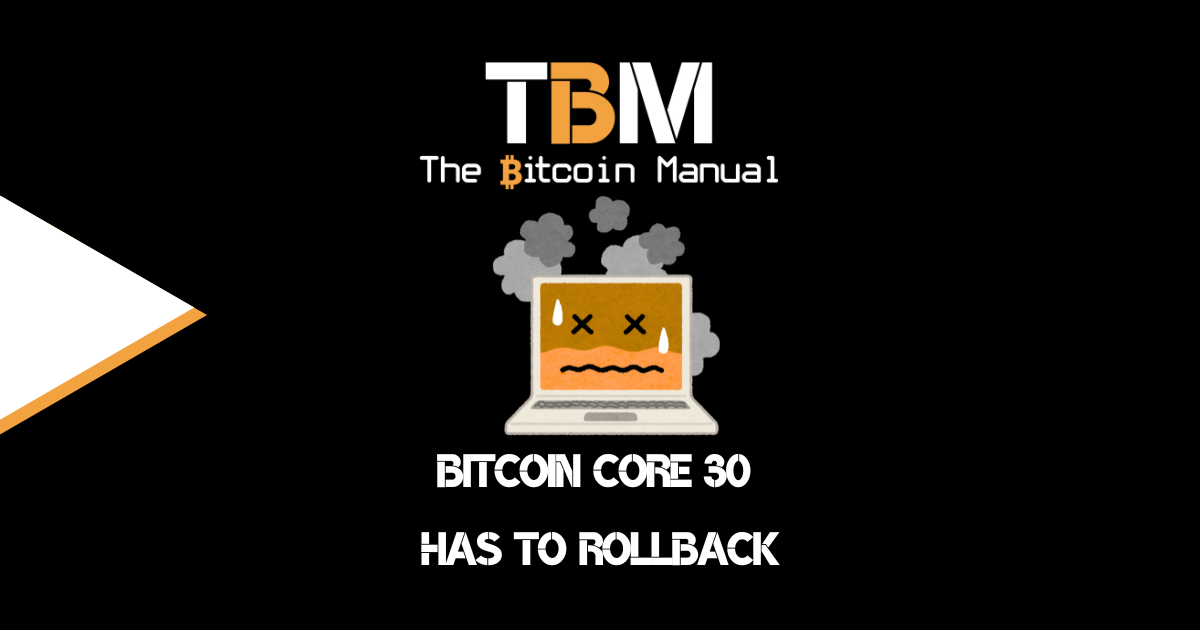Bitcoin is a pseudonymous payment network; if you only use the data that’s available on-chain, it doesn’t provide you with any personal information on transacting partners or who the user is that owns that specific Bitcoin.
As the market matured and large trading platforms with ties to traditional financial rails like banks became the biggest on-ramps, we’ve seen more personally identifiable information used to reduce user privacy.
If you’re using KYC exchanges or sharing your public addresses on social media or public-facing websites, you’re contributing to these data sets and making it harder to keep your funds and transactions a secret.
Today, we have chain analysis firms working with colossal data models from exchanges, scraping data from social profiles and more to build large databases that can be combined with on-chain data (the current UTXO set) and track user accounts, past transactions and, to an extent, future transactions.
Bitcoin privacy has been eroded over the years.
Within the Bitcoin ecosystem, privacy remains a highly sought-after commodity and, dare I say it, a necessity. Ask yourself, why should anyone other than you and those you transact with need to know where you store your money, how much money you have and what you spend it on?
It shouldn’t; your money is merely an accounting system used to store the fruits of your labour, your skill, your time, and the risks you took in the market. You could hold that value in anything you choose.
Fiat already exists, and most of us use it, and it comes with conditions we have to follow, but if you wanted to store your wealth in gold bars, bags of salt or Bitcoin, what’s that got to do with anyone?
The least of all authorities, governments or banks. If Bitcoin miners and nodes don’t care what you do with your money, what right do third parties have in dictating how users transact?
CoinJoin is a legitimate way to use Bitcoin that doesn’t break consensus rules; it might cost you a bit more on-chain fees, but that is the price you pay for the additional privacy assurances. Despite its benefits for those seeking anonymity, CoinJoined Bitcoin is increasingly encountering resistance from cryptocurrency exchanges.
If it’s your money and you can do whatever you want with it, why have exchanges become so paranoid? Well, let’s delve into the changes in the current landscape and the possible reasons behind this avoidance of touching so-called “tainted coins”.
Understanding CoinJoin
CoinJoin is a collaborative transaction method that obfuscates the origin and destination of funds. It involves multiple users pooling their Bitcoin into a transaction and then redistributing those coins to different users, effectively “mixing” their coins.
CoinJoins require a certain volume of users to remain effective, meaning it can take some time for enough users to fill up a mixing pool and start to tumble these coins around.
While CoinJoin doesn’t erase your history of purchases, it provides forward privacy since no one can identify the final destination of your coins on-chain. Anyone following on-chain addresses can see a wallet address with funds in it, but they will have no idea that those funds belong to you.
If done effectively, CoinJoin makes it harder for external observers to trace the movement of individual funds, enhancing the overall privacy of the participants.
FinCen is coming for your coins.
Exchanges launched intending to make it easier to acquire Bitcoin or participate in active trading, but they’ve expanded into so much more, like offering financial services. Previously, using exchanges was pretty simple; while you might have to KYC, you could send and receive Bitcoin to your account without much hassle.
It was so easy many users wrongfully used exchange accounts as wallets, paying users directly from their exchange accounts or using them to receive payments.
But this ease of use is all set to change with stricter regulations coming, such as the Travel Rule.
Recently, The United States Treasury Department’s Financial Crimes Enforcement Network, or FinCEN, also proposed designating cryptocurrency mixing as an area of “primary money laundering concern”, claiming mixed coins were used to fund Hamas’ attack on Israel.
This is not the first time Bitcoin privacy tools have been accused of terrorist funding, with previous allegations of CoinJoined coins used to get around sanctions in Iran and North Korea.
If these privacy tools are so good, how do they know unfriendly parties use them for funding operations? Does that mean these privacy tools are useless?
Does that mean there’s no need to come after CoinJoin? Probably not because it’s not about terrorist funding; it’s about keeping tabs on you and me, the ordinary Bitcoiner.
Exchanges and CoinJoin
As these allegations go through the current media cycle, they pressure Bitcoin businesses and their banking partners. As you can imagine, if your business is lumped into the same conversation as funding terror attacks, it can become a PR nightmare. You will have to put some distance between your operations and CoinJoin, which companies are actively doing.
Despite its privacy-enhancing benefits, CoinJoined Bitcoin is often treated with suspicion by cryptocurrency exchanges with claims that it brings with it additional risks versus coins without a history of mixing.
Exchanges are now sending out communication that if you:
- Send funds directly from their service to a CoinJoin
- Send funds from a CoinJoin directly to an exchange
- Use coins with a supposed tainted history
It could see your account flagged or shut down; while this might impact certain clients, from an exchange’s point of view, they have to comply if they want to remain in business.
Compliance concerns
Exchanges have always been a choke point for regulators, and they are obliged to comply with Anti-Money Laundering (AML) and Know Your Customer (KYC) regulations. CoinJoin transactions, by their very nature, make it difficult to determine the source of funds, potentially raising red flags for compliance teams. Exchanges may be hesitant to accept CoinJoined Bitcoin due to concerns about inadvertently facilitating illicit activities.
Uncertainty and risk for exchanges
The anonymity offered by CoinJoin can create uncertainty for exchanges. It becomes challenging for them to assess the true origin and ownership of CoinJoined Bitcoin, making it difficult to evaluate associated risks accurately. This uncertainty can lead to a cautious approach, with exchanges opting to avoid CoinJoined Bitcoin altogether.
Technical challenges with CoinJoin
Identifying and processing CoinJoined Bitcoin can be technically intricate and resource-intensive for exchanges to review coin history and judge if these coins are “tainted” by their standards or not.
Implementing systems to handle these transactions seamlessly requires additional effort and investment, which smaller exchanges may need to be equipped to undertake, so using a blunt rule like banning CoinJoin coins is an easier option.
The future outlook for KYC on-ramps
The evolving regulatory landscape requires continuous adaptation and innovation. As the adoption of CoinJoin methodologies comes under fire, exchanges may find themselves needing to adapt to remain in operation.
What will be interesting is the reality that collaborative transactions will become more popular, with block space becoming more expensive as more users join the Bitcoin network.
Will exchanges give up on the possible cost saving of using PayJoin to remain compliant but become less competitive? If other exchanges can offer cheaper fees and faster clearing times, this becomes a real risk for exchanges.
CoinJoin is an easy target right now.
CoinJoin seems like an easy target to point to as a villain, but as more privacy tools gain traction, like Ark, Darkpools, eCash and collaborative tools like channel factories, it’s going to make it much harder to maintain the current heuristics about who owns a coin, who doesn’t and its previous ownership history.
Your privacy will come at a cost.
The complex relationship between exchanges and CoinJoined Bitcoin highlights a crucial conflict between privacy and regulation in the Bitcoin space.
Navigating this issue requires finding a balance between user anonymity and financial crime prevention, which will never be achieved, and one group will always remain unsatisfied with the status quo. It can start with requests like avoiding using CoinJoin and end with you needing help to remove coins from an exchange and having to use a custodian.
Right now, you could still get around these rules of directly CoinJoinining from an exchange by using a simple workaround. Instead of sending funds into a CoinJoin, you can extract them to an on-chain wallet first.
If you’re running your own node, this is fairly simple, you can withdraw your Bitcoin to your node’s wallet, CoinJoin, using your preferred service and then move the coins from your node to a cold storage wallet.
Alternatively, you could spin up a temporary hot wallet with software like Sparrow Wallet and conduct your CoinJoins inside the wallet interface before moving it into cold storage.
If you need to sell coins, you had in a CoinJoin, this will be a lot more complicated, so consider making plans for the worst-case scenario, where you might lose your account and learn to become comfortable with acquiring funds P2P.
Do your own research.
If you want to learn more about FinCen regulation of mixers, use this article as a jumping-off point and don’t trust what we say as the final say. Take the time to research, check out their official resources below or review other articles and videos tackling the topic.




